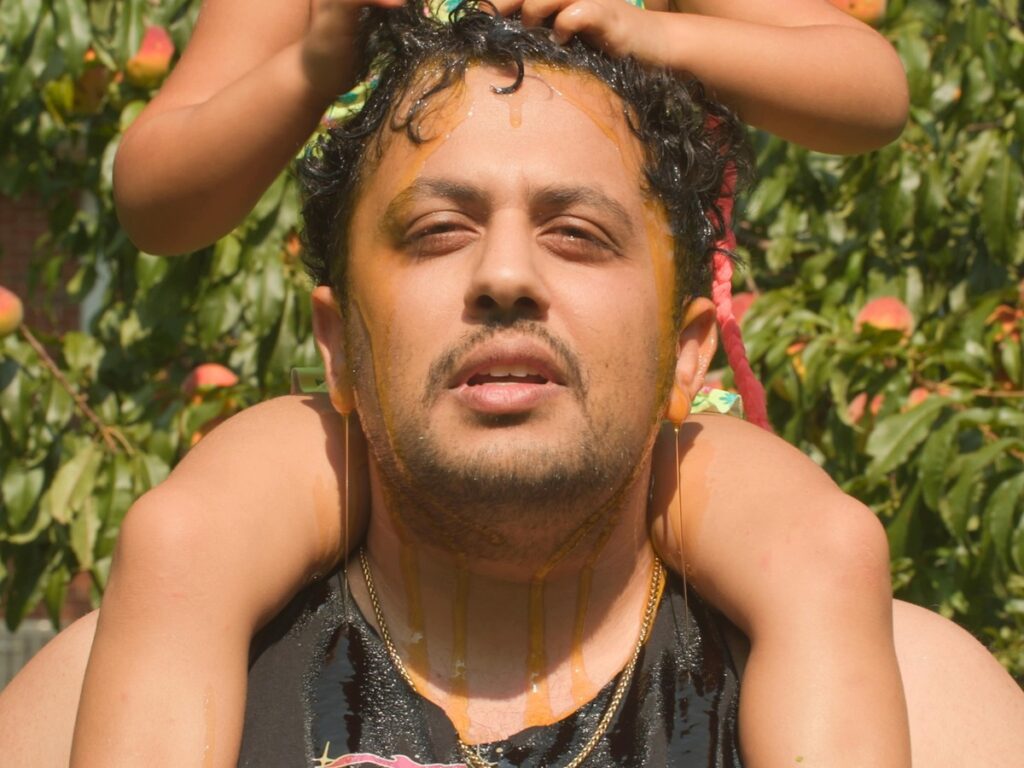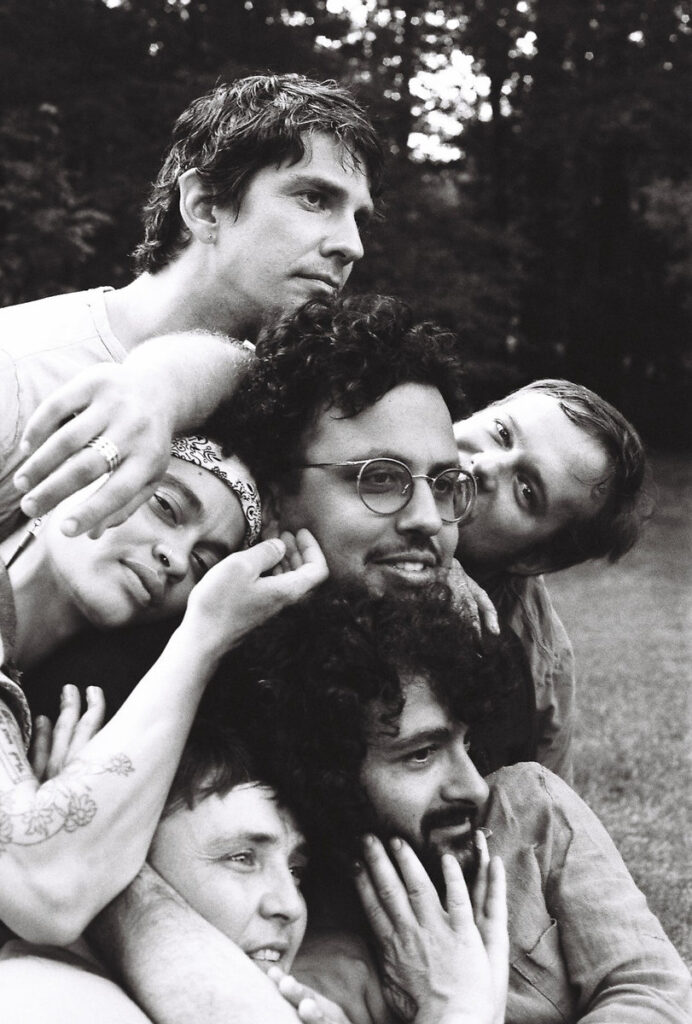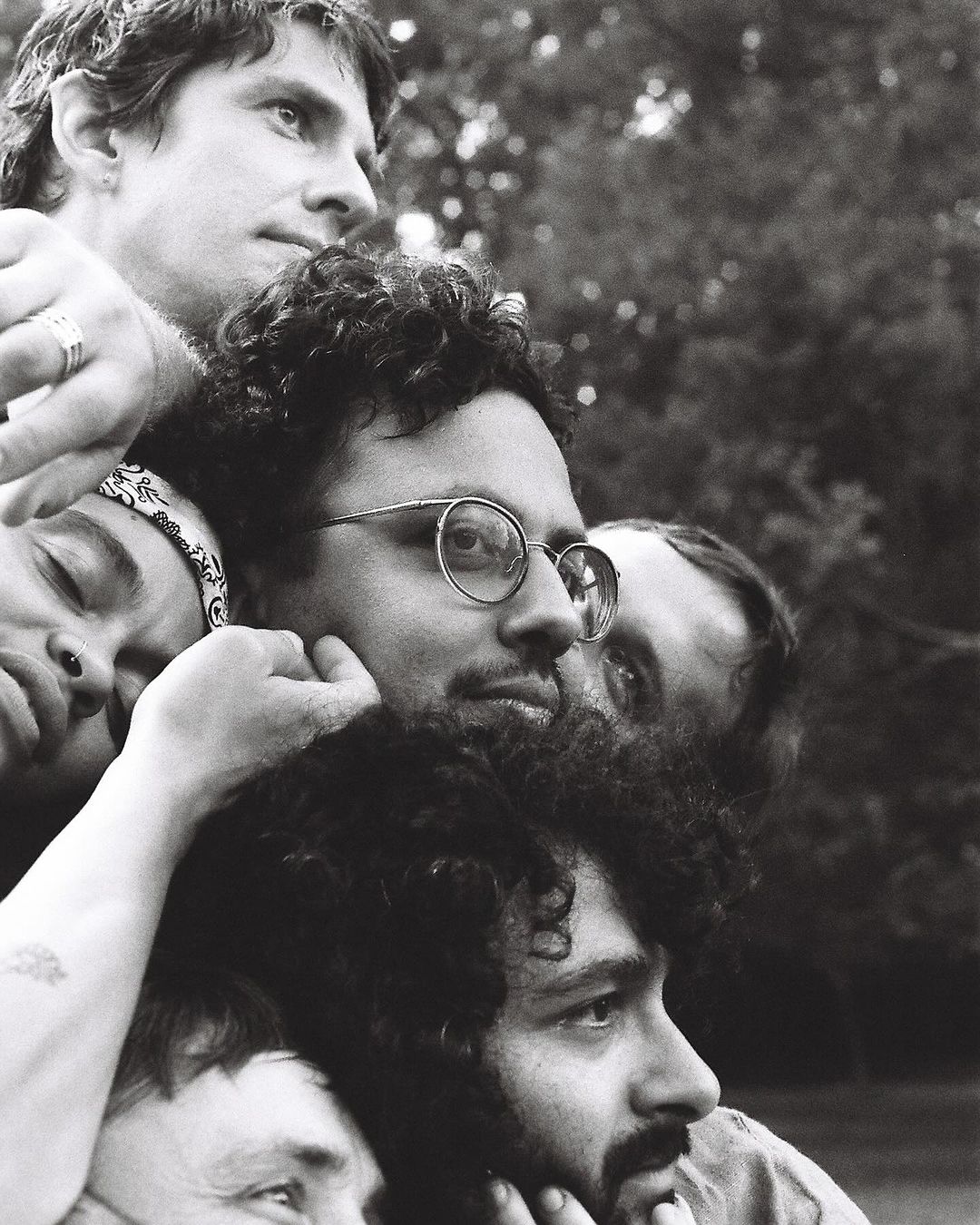‘mouthful of pears’ by Dunums | Interview | New Album, ‘I wasn’t that thought’
Exclusive track premiere of ‘mouthful of pears’ by Dunums, taken from their upcoming album, ‘I wasn’t that thought,’ slated for release on October 4th 2024 via Sleepy Cat Records.
Dunums, the creative endeavor of Sijal Nasralla, is about to drop their highly anticipated album ‘I wasn’t that thought’. This forthcoming record is a deep dive into raw, emotional landscapes, shaped by personal and political turmoil. Infused with intense feelings of grief and resilience, Nasralla channels these experiences into a sonic journey that is both powerful and cathartic. Collaborating with close friends and fellow artists, including Tasneem and Rakhee Devasthali, the album reflects a unique blend of post-rock, punk, and emo nostalgia, creating a rich tapestry of sound. The album’s tracks range from poignant reflections on personal loss to fervent responses to global crises, making it a multifaceted exploration of both intimate and universal themes. As Dunums prepares to share this work with the world, ‘I wasn’t that thought’ promises to resonate deeply with listeners, offering a space for both emotional release and introspective engagement.
“Playing music and making records has always been a spiritual container”
Creating ‘I wasn’t that thought’ sounds like it must have been one hell of a trip—a swirling cocktail of grief, joy, and everything in between. How did you manage to channel such intense and conflicting emotions into music without losing yourself in the process? There’s this raw, unfiltered energy to the album that feels like it’s teetering on the edge of something huge—how did that come to be?
Sijal Nasralla: Playing music and making records has always been a spiritual container for my intensity, pain, and sense of beauty. If I didn’t allow feeling to run its course through me, I don’t think I would be an artist. I’d probably be a deeply hurt and hurtful person. When inspiration comes, typically after periods of grief, I welcome it openly. I let it ride me until I’ve given voice to the things churning inside. To me, that emotional muscle feels like more of the practice than sharpening my guitar or songwriting skills.
Tasneem’s perspective is at the heart of this record, right? I mean, crafting songs from your daughter’s point of view is a bold move. What was it like to try and see the world through her eyes, to translate her little triumphs, hurts, and wonder into something as expansive as music?
I’m just so in love with her. It is a miracle of my life every day to witness her. I want nothing more than to be a facilitator for her most honest and abundant life. I want her to be herself so deeply. I want her to sense into this awful and incredible world without the burden of mine or the rest of her family’s traumas. I want the love we pour into her to be her protection and compass. I know I will make mistakes along the way. Many of the songs written from her perspective felt like a practice in being poetic about this dissonance that she is herself, and she is of us. All of that is so inspiring to me, especially when she was so small.

Let’s talk about those profound and horrific things that birthed this album—the pandemic, the Save Sheikh Jarrah movement, the atrocities in Gaza. There’s a lot of weight there, stuff that most people would struggle to even talk about, let alone weave into their art. How do you avoid being crushed by it all and instead turn it into something that breathes and moves? Where does the strength come from to put that into music without being swallowed by it?
A lot of therapy. Lots of inherited resilience from my Palestinian refugee family. Belief in something greater. Certainty that Palestine will be free. I’ve been an organizer for years. I’ve never felt more powerful and free than being among people who wield love, solidarity, and art as weapons of the future. I’m grateful to be soft and strong enough to make art and be vulnerable in the face of all this horror and oppression. I hope it makes others feel and want to fight more.
The whole “being small in a big, scary world” vibe really hits home. It’s like you’re tapping into that universal angst we all felt as kids but never quite shook off. Do you see any of your younger self in Tasneem? Is there a sense of reliving those overwhelming emotions through her, and does that influence how you write these songs?
Honestly, all that angst kind of revealed itself to me only after seeing the album art, and the record was done. It was kind of a funny surprise that I loved and needed. It felt validating. I leaned into it more and made all the song titles longer and more emo-sounding. Then I just giggle about a tiny kid having all that angst. It feels deep and mostly hilarious to me.
“Blending is really what Dunums is all about”
Genre-wise, there’s a definite post-rock and punk vibe with some emo nostalgia thrown in for good measure. How did you end up blending these sounds, especially when you’re dealing with themes as deep as fatherhood and political strife?
Blending is really what Dunums is all about, not really by choice. As a musician with more improvisational chops than formal training, I’m really just going off “feel.” I build my songs from the inside out, often starting with twiddling for days until something emerges from within the stitches. I am also ten-toes-down with this emo renaissance we are in, aside from the misogyny in old-school white boy emo of course, so maybe six-toes-down. I love Taking Back Sunday’s ‘Tell All Your Friends,’ probably one of the most influential records of my high school life. I also love emo-trap and emo-ambient as emerging genres. This is my take at emo-diaspora art rock, I guess. Maybe a dash of math.
You’ve mentioned that this album took you back to why you started making music in the first place. What were those early moments that lit the fire under you as a young musician?
I got my first bass guitar at 8 years old so I could play Blink-182 covers at the church youth group space up the street from my house with my two other friends. I stuck with music mostly because my family faced some pretty devastating challenges during my early teen years that led to me being alone in my room a lot. I think the reason I still play music today is because I felt such huge catharsis to records like ‘Burn Piano Island Burn,’ ‘Relationship of Command,’ and ‘De-Loused in the Comatorium’ in my room during those hard times. I’d often mime the bass parts on my Ibanez and cry. Music carried me through that pain without me knowing. Not so different from what needed to be expressed with this record.
That third single, ‘honeycomb art on a billion twins,’ is so great. You’ve got this fixation on the number two—what’s the story there? How does that obsession with duality fit into the bigger picture of the album? It’s like there’s this sense that everything’s connected, repeating, but with subtle shifts—what were you going for with that?
I was really just trying to do something silly and effusive with ‘honeycomb art on a billion twins.’ Something impressionistic with just one anchor that ties it all together—two amazing kids, Tasneem and her friend June, who was born in the room next to the room where my partner at the time was in labor. The whole thing just burst out of one of those moments where I couldn’t tell if I was making a joke on guitar or actually vibing on something. I gave myself permission to be playful and weird about these two. Keep it cute but also vague enough with rich imagery to feel ethereal, weird, and powerful. That’s all I got—it’s just so fun, loving, and angsty.
Tell us about today’s premiering track, ‘mouthful of pears.’
This one’s all about grieving the family I lost in Jordan during COVID and parenting Tasneem in her earliest moments. Feeling an overwhelm of sadness inside while being witness to the little mundane miracles of parenting in the home. It’s a song guided by a prompt from friends and loved ones more experienced with loss than me, who told me that these moments of grief require us to “take things very slowly, hug and connect with those you love, cook your favorite meals, take in everything patiently.” This song is that. A close-up on the small things and big sensations of parenting from this place of hurt—frothy messes, swollen stares, glitter sprayed across the floor, and my fears.
Collaborating with other artists—what’s that like? Especially when they’re people who are close to you, like the parents of your daughter’s friend. How did their contributions shape the sound of this album? Did working in those intimate settings, like your home or Mangum Street Grocery, bring something different to the recordings?
I love collaborating. This record has a lot of folks. I wanted to bring in people I feel very connected to for this record—people I truly love. I brought in Tasneem, my co-parent Rakhee Devasthali, our dear friends Maya and Aaron, one of my oldest friends Casey Malone (Zodiac Lovers), and the incredible bassist Sinclair Palmer, who cared for Tasneem with us during lockdown. David Barrett, who played drums, tracked, and mixed this whole thing, has been recording nearly every project I’ve done with Dunums, The Muslims, or other one-off bands for the past 15 years. I love hearing my beloveds on this record. I definitely brought in artists I truly admire, like Joe Westerlund on drums and Catherine Edgerton on vocals, to bring musical ideas to life that I couldn’t manage on my own. I just love all the people on here, and I love the memories of tracking them in the studio and at my home. So much love.
I would love it if you could draw some parallels to your previous release, ‘where’s my eidi?’?
My previous release is actually ‘its in your ribs.’ ‘where’s my eidi?’ came out in 2016-ish, and Radio Khiyaban put it out in 2021 on tape. I love all my records, and they are all very different. I don’t really see many parallels. They all just mark a period of inspiration for me, and I appreciate them in those ways. They all have different collaborators and intentions. ‘its in your ribs is a split with my friend Alston Palmer, made when I was really experimenting with rage. ‘where’s my eidi?’ was a large collaboration with Palestinian artists Ahmad Jitan (poetry), Huda Asfour (oud), and Ala’ Jitan (bass). We made an experimental record for the Palestinian diaspora. It was special. I think it’s a masterpiece.
What about differences? I’d also love it if you could talk about the very beginning and first recordings.
The first record I ever did as Dunums was my self-titled one in 2011. I was living in Asheville, NC. I was really young and trying intentionally to make hipster choices. I felt like I just had to be freaky to be “interesting” or something. Although I love my playing and composition on that record, I feel judgmental about it. There is so much story behind those songs that I tried to obscure in my writing because I didn’t have the vulnerability or courage to express myself differently. I hope people like that record, but it serves as a reminder for me of what not to do moving forward with my craft.
What’s the hope for this album? When people sit down and really listen to it, what do you want them to feel, to understand? There’s a lot going on in the world right now—do you see this album as a response to that, or as something that transcends the current moment?
The U.S. is shit. The music industry is shit. The U.S. is a shit place to be an artist. At the core, I hope people listen meaningfully to the music I make. There are some standalone tracks, like ‘binti,’ where I want people to sense how devastating this genocide has been and do something about it. There are other tracks where I want all that good emo love and angst to flow for listeners, to make them feel more. Locally, I really hope artists within the “scene” I am in come to Dunums shows or listen to the record and aspire to see themselves and their labor as more than entertainment at bars. We’ve done a lot of fundraisers since October 2023. More of that—maybe more installations, more direct actions, more creative hell for the genocidal fanatics and their friends.
And finally, what’s next for Dunums? Are there more stories to tell, more layers to peel back in the future? Where do you go from here?
I think we will do more shows. Possibly even leave the state and do a proper tour or several. I have some new songs I am tinkering with in a different direction entirely. I have Palestinian artists around the world I want to get in the studio with, like Kareem Samara, and see what happens. I want to do some expansive rhythmic music. I want Dunums to be able to add revolutionary feeling to protests and actions in the near future if needed.

Let’s end this interview with some of your favorite albums. Have you found something new lately you would like to recommend to our readers?
I’ll throw out some artists that are in my current rotation: Joose Lord, Claire Rousay, Mustafa, Djavan, Some Surprises, Tenci, and Nourished by Time. I think I’ve listened to Nourished by Time more in this past year than anything else.
Klemen Breznikar
Headline photo: Erin Olivia Media
Dunums Instagram / Bandcamp / YouTube
Sleepy Cat Records Official Website / Instagram / Bandcamp




